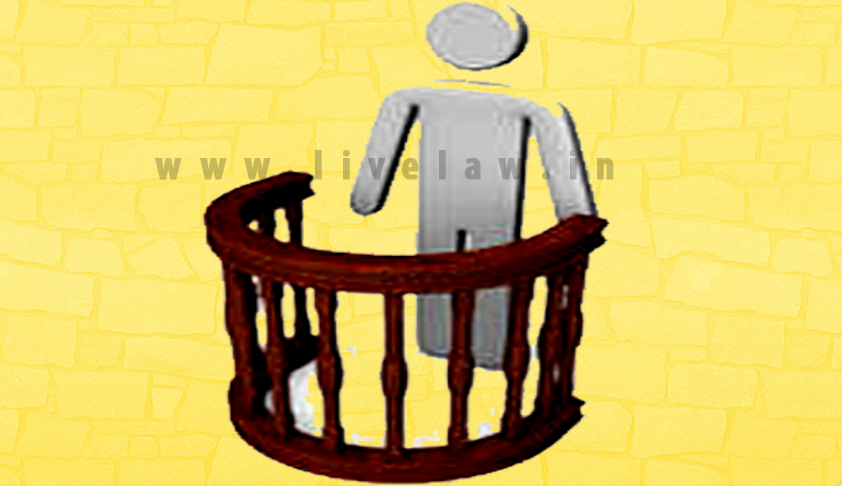Should the Accused Summoned in Criminal Cases get a seat?
Justice M.R. Hariharan Nair
30 July 2015 4:01 PM IST

Press reports of the 5th of this month show that a social activist has challenged the legality and propriety of an age old system in our courts. The demand is for providing seating facility for the ‘under trial accused’ who is forced to be present in court to watch the trial against him. The PIL seeks for a direction to all Judicial and Quasi-Judicial Forums in the state to treat victims, witnesses and suspects with dignity by offering them seats. The report goes on to say that on the 4th of this month the Bench Comprising of Chief Justice Sanjay Kishan Kaul and Justice T.S Jaiganesh of the Madras High Court also gave some directions to the Registrar General in this regard. Reportedly, the Court held:
"We find it difficult to accept that any court would deliberately make a woman or an expectant mother to stand in the court. Even in the witness box, a person can be seated, if required, This issue should be looked into by Registrar General of the Court and if required, necessary direction/office order can be issued”
The above direction took me back to the late Ninetees when I was a Sessions Judge and was confronted with a similar situation, though not on any PIL. I was trying a batch of six or seven criminal cases against a Ripper, an alleged serial killer, one after the other. Each trial would last about ten days and thus the Ripper was in my court for over two months. Imagine his plight to be on his feet right from 11 in the morning till 5 pm when the court would disperse!
This ripper was an intelligent man; one who was well aware of the latest decisions of the Supreme Court and of his own human rights. Day long standing in the box on the first few days made him restive. After a few hours of standing in the box on one day, the ripper made a humble demand. He should be allowed to sit down in the box. I found no reason to deny the demand once I put myself in his stead, appreciated his plight and considered the justifiability of the demand. After all, how long can one stand? After a few minutes any one would feel the urge to sit down and after some more time, his feet would no more support him. He will, perforce, change from vertical to horizontal posture. Apart from this biological compulsion, the legal side is also in his favour. He is in the box not as a convicted prisoner; but only as an under trial accused. The law presumes him to be innocent until convicted after trial. The human right angle is also in his favour. May he be in the box reserved for the accused; nevertheless, he is a human entitled to maintain his dignity. He cannot be treated like an animal. So why not he sit in the box?
There is one more ground in his favour. The logic behind his forced existence in court, of course, in the dock, is as a person directly interested; in fact most interested in the ongoing trial. He must have an opportunity to watch the demeanor of witnesses and test whether sworn version given by a particular witness was falsehood, truth or a mixture of both. If the witness was speaking untruth, the testimony has to be demolished. The only weapon in his hand therefor, is the cross examination that he can do by himself or through his counsel. For that the counsel has to be briefed about the back ground of the witness and why his testimony is false and incongruous with other proved facts. Later on the Accused will also have to face questioning under section 313 of Cr.PC which also would be best possible only if he was listening to what was going on in court. After compelling his presence there for the above purposes, can he be treated in an inhuman fashion?
The result of all these mental exercises was that the Ripper was allowed to sit down in the dock. He sat on the floor and was contented; but I was not. Why should he squat? Is he not entitled to better treatment with more dignity? What benefit does the system get when he is denied a proper seat? Why not provide him a bench though that was not requested for? After all, under the existing circular of the High Court, a witness summoned is an honoured guest of the Court and entitled to be provided with a chair in the witness box. Why not extend the benefit to the Accused too when that does not offend any law? The outcome of all this was that in coming days a bench found its place in the Accused Box. Ripper was happy; I too was happy. Trials in the Ripper series went on smoothly. In those of the cases where acceptable evidence came in, he was convicted; in such others where the circumstantial evidence available was infirm, he was acquitted. He went back to the prison; suffered the sentence for a few years and after three or four years, escaped to the other world following some ailments for which he had of course, received treatment in hospital. Looking back, I find absolutely nothing which affected my judicial functioning as the presiding Judge in consequence of the seat reform.
The reform was not Ripper specific. Even after the Ripper series were closed, the provision for bench in the dock continued. A Bench for the Accused and a stool in the witness box (not enough space for a chair therein) became a standard arrangement in all the courts where I worked subsequently too. I hope the ultimate verdict of the Madras High Court also will also be no different. Let us wait and see.
Tail piece: More food for thought. Should the benefit of seat be confined to the Accused? What sin has the escort official committed which should force him to be on his feet all the while? Is it that all his human rights should be deemed to be surrendered once he joins the police force? If during trial, the Court officer, the Advocates, the duffedar, the stenographer and the peon can be seated, should the security official alone be denied a seat in Court preferably, very near to the entrance to the Accused’s dock?
 Justice M.R. Hariharan Nair, Former Judge, High Court of Kerala
Justice M.R. Hariharan Nair, Former Judge, High Court of Kerala


